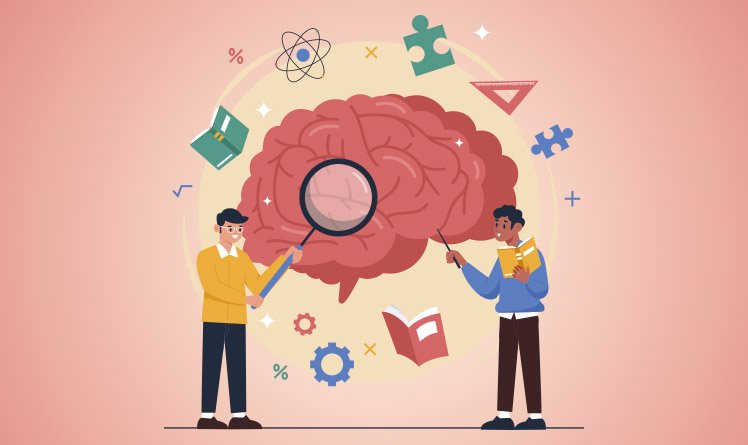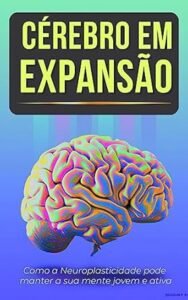5 Brain Myths That Are Sabotaging Your Mind

|
Getting your Trinity Audio player ready...
|
If you believe your brain is a fixed, genetically programmed machine doomed to deteriorate over time, you may be harboring outdated beliefs that limit your potential. Modern neuroscience, combined with studies on consciousness, mindfulness and NLP, reveals that many of these ideas are myths. And worse: they're sabotaging your mind every day without you even realizing it.
Therefore, this article will explore the top 5 myths about the brain that prevent you from evolving, growing, and transforming your reality. We'll debunk each one, show you what science says, and, most importantly, how you can take control of your mind. Ready for a new way of thinking?
Myth 1: Brain damage is irreversible
For a long time, it was believed that brain trauma was a final sentence. If you suffered a stroke or a traffic accident, for example, you were condemned to live with impaired functions forever. But today we know that the brain possesses a remarkable power: neuroplasticity.
This ability allows neighboring neurons to take over the functions of damaged areas, rebuilding connections and creating new pathways. Like an intelligent bypass system, the brain finds alternative routes to move forward. Impressive cases of recovery after years of paralysis show that, with adequate stimulation, it is possible to regenerate cognitive and motor functions.
Recent research reinforces this perspective. published study in the magazine Nature demonstrated that patients with extensive brain injuries were able to recover some motor and cognitive function after intensive rehabilitation programs. This was only possible because the remaining healthy neurons were stimulated to form new connections.
Thus, when we understand that damage is not an end, but an adaptive challenge, we change our relationship with the fear of loss. Neuroscience makes it clear: the brain is not as fragile as we once thought. It is resilient, alive, and full of possibilities.
Myth 2: Brain circuits are immutable
How many times have you heard: "I'm just like this, there's no point in trying to change"? This speech stems from the false idea that our brain circuits are fixed, as if we had an unchangeable operating system. But we're not machines. We're plastic beings, literally.
Neuroplasticity demonstrates that the brain constantly reorganizes itself. Thus, each new experience, learning, or habit physically modifies its connections. A striking example was an experiment conducted in the mid-20th century by Karl Lashley, an American psychologist who trained rats to search for food in a maze. After successful training, he removed a large portion of the rats' cerebral cortex. Despite having 90% removed from their brains, they managed to learn to navigate the mazes. This proves that the brain creates new pathways even under extreme conditions.
Furthermore, neuroscientists like Michael Merzenich and Eric Kandel have proven that intentional behavioral changes can alter the brain's architecture. Training attention, shifting focus, developing new skills—all of these directly influence how brain circuits operate. In other words, as brain areas begin to interact, new circuits are created.
In our everyday lives, this means you can learn new skills, overcome trauma, change behavior patterns and expand your cognitive potential. With repetition, intention, and emotion, the mind can literally redesign the brain.
So the bottom line is that our brains aren't immutable. Quite the opposite. Neuroplasticity gives us the ability to develop our thoughts, feelings, and actions in any direction.
Myth 3: Brain aging is inevitable and irreversible
The old idea that the brain declines with age is being dismantled. Aging doesn't mean losing cognitive abilities. Studies show that people over 80 continue to learn, make complex decisions, and maintain active memories.
What changes with age is the pace of plasticity, but not its possibility. Factors such as diet, sleep, social relationships, stress and mental stimulation are crucial for brain performance. For example, identical twins with different lifestyles have different brains at age 70, even with the same genes.
Scientific evidence also reveals that aging can be “cognitively healthy.” Harvard University guide shows how to prevent, stop, and even reverse cognitive decline.
The truth is that we can age well and with mental clarity. The key is to keep using our brains. As the saying goes, "a mind that doesn't get exercise atrophies." So read, write, talk, learn something new, challenge your mind. Aging is inevitable. Losing lucidity isn't.
Myth 4: The brain loses millions of cells every day, which cannot be replaced.
This myth is frightening and, for a long time, was taught as truth. The idea that the brain loses neurons daily, without replacement, reinforced the feeling of fragility and powerlessness.
But science has proven otherwise. Yes, we lose about 85,000 cortical neurons per day, or one per second. This fraction is minuscule compared to the number of neurons we possess—an estimated 86 billion in the brain, with about 16 billion in the cerebral cortex. Thus, it would take about 515 years to lose "only" these neurons from the cerebral cortex. Furthermore, a study by researcher Paul Coleman of the University of Rochester showed that the total number of nerve cells in a 20-year-old brain is practically the same as at 70.
Additionally, we have "neurogenesis," a process of new neuron formation. It occurs in regions like the hippocampus, which is crucial for memory and learning. This process can be stimulated by physical exercise, meditation, quality sleep, healthy eating and social contact.
Furthermore, recent discoveries indicate that neurogenesis can continue even into old age. Research from Columbia University revealed that adults over 70 still produce new neurons, as long as they are exposed to appropriate stimuli. This overturns the long-held belief that brain cell creation was exclusive to childhood.
Therefore, far from being a minefield that dissolves over time, the brain is a dynamic and regenerative ecosystem. The better it is cared for, the stronger it becomes. And yes, it is possible to create new mental pathways until the very end of life.
Myth 5: Primitive reactions dominate the rational brain
This is perhaps the most insidious myth of all. The idea that we are dominated by impulses like fear, anger, jealousy, or aggression stems from a reductionist view of human evolution. It's the infamous "reptilian brain" supposedly dictating our actions.
Yes, we have instincts. They are part of our biological inheritance. But we also have a conscious mind, with the capacity for choice. empathy, self-control, and creativity. The brain isn't on autopilot. It's multidimensional. And, above all, it can be trained.
Mindfulness, for example, is a practice that helps us recognize impulses without acting automatically. The NLP Neuro-linguistic programming (Neuro-linguistic Programming) teaches how to reprogram limiting mental patterns. The study of emotions shows that we can learn to deal with feelings in a mature and conscious way.
Research from Stanford University shows that regular practice of meditation mindfulness It can decrease activity in the amygdala—the brain center linked to fear—and strengthen the prefrontal cortex, responsible for reasoning and decision-making. In other words, we can "train" our brain to respond with more balance and less reactivity.
Being human is more than reacting. It's choosing how to respond. In this way, your brain is at your service, not the other way around. So, you just need to take control of the steering wheel.
How to boost your brain in everyday life
Now that you know your brain is adaptable, regenerative, and much more powerful than you imagined, the practical question arises: how can we maximize it in our daily lives? The answer lies in small, consistent actions that stimulate different areas of the brain and strengthen your cognitive functions.
- Eat smart: Foods rich in omega-3s, antioxidants, magnesium, and B vitamins are good for brain health. Include fish, nuts, avocado, berries, turmeric, and dark leafy greens in your diet.
- Move your body: Aerobic exercise improves blood flow to the brain, stimulates neurogenesis, and reduces stress hormones. Walking, swimming, or dancing can make a huge difference.
- Get quality sleep: During deep sleep, the brain consolidates memory, regenerates cells, and organizes information. Prioritize 7 to 9 hours of sleep per night, without blue light, before bed.
- Meditate every day: Mindfulness reduces anxiety, increases concentration, and activates areas linked to empathy and self-control. Just 10 minutes a day has scientifically proven effects.
- Always learn something new: Learning a new language, instrument, or skill challenges the brain and creates new neural connections. Novelty is powerful fuel for the mind.
- Relate well: Meaningful conversations, exchange of ideas, and emotional connections keep the brain active and healthy. Isolation, on the other hand, is a risk factor for cognitive decline.
These habits act as a complete brain workout. They're not about miracle hacks, but about cultivating a lifestyle that supports mental vitality at every stage of life. After all, taking care of your brain is taking care of who you are.
The Power of Optimism in Building a Stronger Brain
Did you know that cultivating positive thoughts Can optimism literally change the structure of your brain? Science has already proven that optimism isn't just an emotional stance—it acts as a powerful stimulator of neuroplasticity.
When you maintain an optimistic outlook, your brain releases neurotransmitters like dopamine and serotonin, which improve mood, increase motivation, and strengthen synaptic connections. In other words, optimism is like fertilizer for neural networks: it helps consolidate learning, improve memory, and enhance problem-solving ability.
Studies from the University of California have shown that optimistic people activate the prefrontal cortex. So, by adopting a positive mindset, you are literally training your brain to function better, even in challenging situations.
Simple practices like daily gratitude, positive visualizations, and constructive affirmations help redirect the mind's focus toward possibilities rather than limitations. Over time, this type of thinking becomes automatic—creating a more resilient, creative, and prepared brain to cope with life.
Conclusion: The freedom to own your mind
You myths about the brain keep us trapped in a limited and mechanistic view of the human being. But neuroscience, combined with approaches such as NLP, mindfulness and positive psychology shows that we have much more power than we imagine. The brain is plastic, adaptable, regenerative, and profoundly influenced by our choices.
So the question is no longer “can I change?”, but rather: “How can I use my brain to my advantage today?”
You are not your past, your habit, or your fear. You are the observer. The commander. The author of your own mental history. And your brain is ready to be your ally on this journey.
Recommended reading:
Image: Freepik

Marcel Castilho is an expert in neuromarketing, neuroscience, mindfulness and positive psychology. In addition to being an advertiser, he also has a Master's degree in NLP – Neurolinguistic Programming. As the owner and founder of the communications agency VeroCom and also of the digital agency Vero Contents, he has been studying human behavior for over 30 years.



